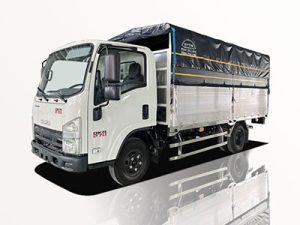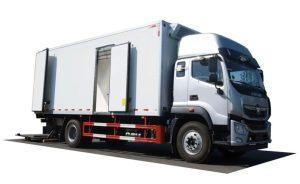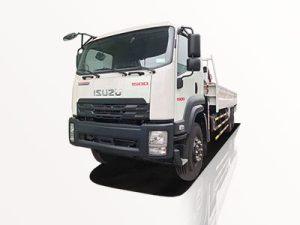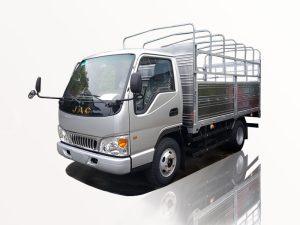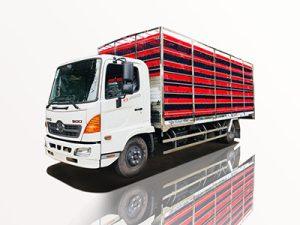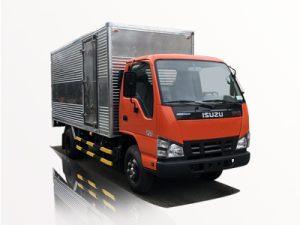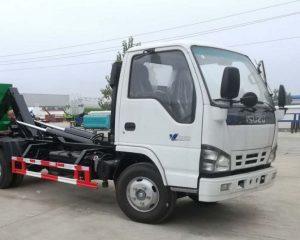Monday to Saturday - 8:00 -17:30
Everything You Need to Know About Propane Tank Trailers
Propane tank trailers are essential for various industries, providing a safe and efficient means of transporting propane fuel. This comprehensive guide will delve into the ins and outs of propane tank trailers, their applications, benefits, and critical safety measures. Whether you are considering purchasing a propane tank trailer or just want to learn more about them, this article will provide all the information you need.
What is a Propane Tank Trailer?
A propane tank trailer is a specialized vehicle designed to transport propane gas for residential, industrial, and agricultural use. These trailers are equipped with pressurized tanks that ensure safe and efficient handling of propane, making them a popular choice for businesses and individuals needing to transport this flammable gas.
Design and Structure
The design of propane tank trailers typically includes:
- Pressurized tanks with safety valves
- Robust chassis for enhanced stability during transit
- Axle configurations designed for weight distribution
- Loading and unloading equipment, like pumps and hoses
Types of Propane Tank Trailers
There are various types of propane tank trailers, including:
- Flatbed Trailers: Often used for transporting multiple smaller propane tanks.
- Tankers: Large, sealed tanks specifically designed to carry liquid propane.
- Bobtail Trucks: Smaller, truck-mounted propane tanks for local deliveries.
Applications of Propane Tank Trailers
Propane tank trailers are used in various sectors, including:
Residential Use
Many households rely on propane for heating, cooking, and fueling appliances. Companies often use propane tank trailers to deliver the necessary propane to these homes. For example, rural areas with limited access to natural gas lines frequently depend on propane for their energy needs.
Agricultural Use
Farmers use propane for crop drying, greenhouse heating, and powering equipment. Propane tank trailers conveniently transport large volumes of propane directly to farms, ensuring a steady supply during peak use times.
Industrial Use
Industries such as manufacturing, welding, and construction use propane to fuel equipment and machines. Transporting propane via tank trailers allows industries to maintain operations efficiently and safely.
Commercial Use
Restaurants and commercial kitchens often use propane for cooking and heating. Restaurants rely on frequent deliveries of propane via tank trailers to keep their operations running smoothly.
Benefits of Using Propane Tank Trailers
Cost-Effectiveness
Propane usually costs less than electricity or other fuel sources, particularly in rural areas. By transporting propane with tank trailers, households and businesses can save on energy costs, making it a more economical choice.
Versatility
Propane can be used for various applications, from heating to cooking and fueling vehicles. The versatility of propane tank trailers allows users to adapt to their specific needs effortlessly.
Environmental Benefits
Propane is a cleaner-burning fuel compared to gasoline or diesel. The use of propane helps reduce greenhouse gas emissions, making it a more environmentally friendly energy choice.
Safety Considerations for Propane Tank Trailers
Transporting propane requires strict adherence to safety protocols. Key safety considerations include:
Training and Certification
Drivers transporting propane must undergo training and obtain specific certifications, such as a Commercial Driver’s License (CDL) with a hazardous materials endorsement.
Regular Maintenance
Routine maintenance of the trailer and tank is critical for safety. This includes inspecting the tanks for leaks, ensuring all valves are functioning properly, and checking the overall structural integrity of the trailer.
Following Regulations
Adhering to federal and local regulations governing hazardous materials is essential. The Pipeline and Hazardous Materials Safety Administration (PHMSA) sets forth guidelines for transporting propane safely.
Emergency Preparedness
Equipping the trailer with emergency response kits, including fire extinguishers and spill containment tools, is essential. Drivers should also be familiar with emergency procedures in case of a propane leak or accident.
Choosing the Right Propane Tank Trailer
Selecting the right propane tank trailer involves considering several factors:
Size and Capacity
Determine how much propane you need to transport and choose a trailer with the appropriate capacity. Trailers range from smaller bobtails that hold a few hundred gallons to larger tankers capable of carrying thousands of gallons.
Type of Trailer
Depending on your needs, you may choose between flatbed trailers for smaller tanks or tanker trailers for transporting larger volumes of propane. Assess your typical use case to make the best choice.
Compliance and Certification
Ensure that the trailer meets safety standards and regulations. Look for certifications indicating that the trailer complies with local and federal regulations.
Budget Considerations
Evaluate your budget, not just for the purchase but also for maintenance and insurance costs. Weigh the upfront cost against the long-term benefits and savings from using a propane tank trailer.
Maintenance Tips for Propane Tank Trailers
Regular maintenance is crucial for the longevity and safety of propane tank trailers. Follow these tips:
Routine Inspections
Inspect the trailer regularly for signs of wear and tear. Key areas to check include:
- Tank integrity and valves
- Brake systems
- Tires and suspension
Cleaning and Servicing
Keep the tank and trailer clean to prevent corrosion. Service the trailer according to the manufacturer’s recommendations and schedule maintenance checks.
Documentation and Records
Maintain records of all inspections, repairs, and maintenance performed on the trailer. This documentation can be invaluable during safety audits or inspections.
Cost Analysis of Operating a Propane Tank Trailer
Understanding the costs associated with operating a propane tank trailer is crucial for budgeting and financial planning. Here’s a breakdown of potential costs:
Initial Purchase Costs
The cost of purchasing a propane tank trailer can vary widely based on type and specifications. Here’s an overview:
| Type of Trailer | Approximate Cost |
|---|---|
| Bobtail Truck | $30,000 – $80,000 |
| Tanker Trailer | $50,000 – $150,000 |
| Flatbed Trailer | $20,000 – $60,000 |
Operational Costs
Operational costs include fuel expenses, insurance, maintenance, and compliance fees. Here are some typical annual costs:
- Fuel Costs: Depending on usage
- Insurance: $1,500 – $3,500
- Maintenance: $500 – $2,000
- Compliance and Training: $200 – $1,000
FAQs About Propane Tank Trailers
1. What should I consider when choosing a propane tank trailer?
Consider the size and capacity, type of trailer, compliance with safety standards, and your budget when selecting a propane tank trailer.
2. How frequently do I need to inspect my propane tank trailer?
It is recommended to conduct routine checks at least once a month and schedule professional inspections annually.
3. Can I use my propane tank trailer for other types of fuel?
No, propane tank trailers are specifically designed for transporting propane. Using them for other fuels may pose safety risks and violate regulations.
4. What safety gear should I keep in my propane tank trailer?
A fire extinguisher, spill containment kit, and first-aid kit are essential safety gear to have on board.
5. Are there licensing requirements for driving a propane tank trailer?
Yes, drivers typically need a Commercial Driver’s License (CDL) with a hazardous materials endorsement to transport propane legally.
6. What is the best way to avoid leaks in propane tank trailers?
Regular maintenance, proper inspections, and ensuring that all fittings and valves are tight can help prevent leaks.


